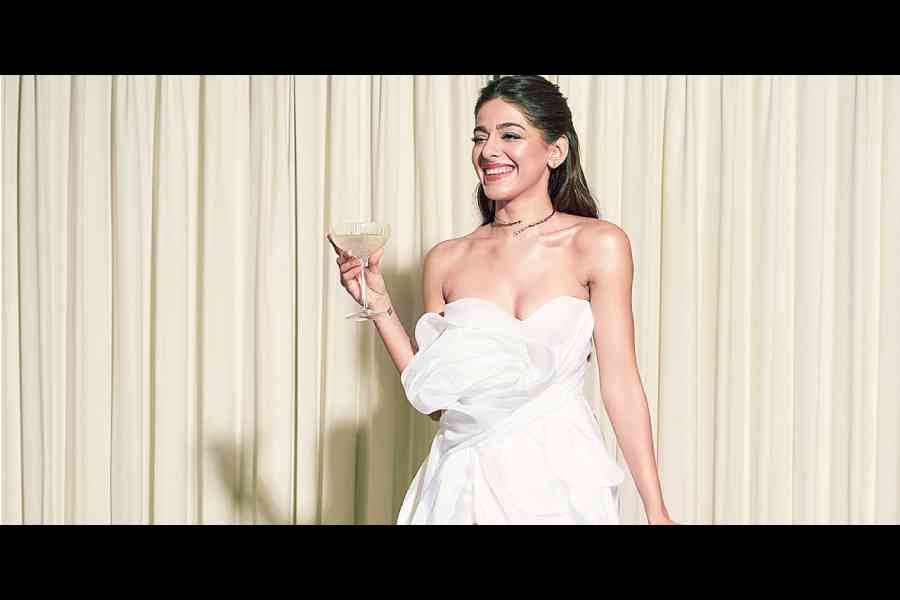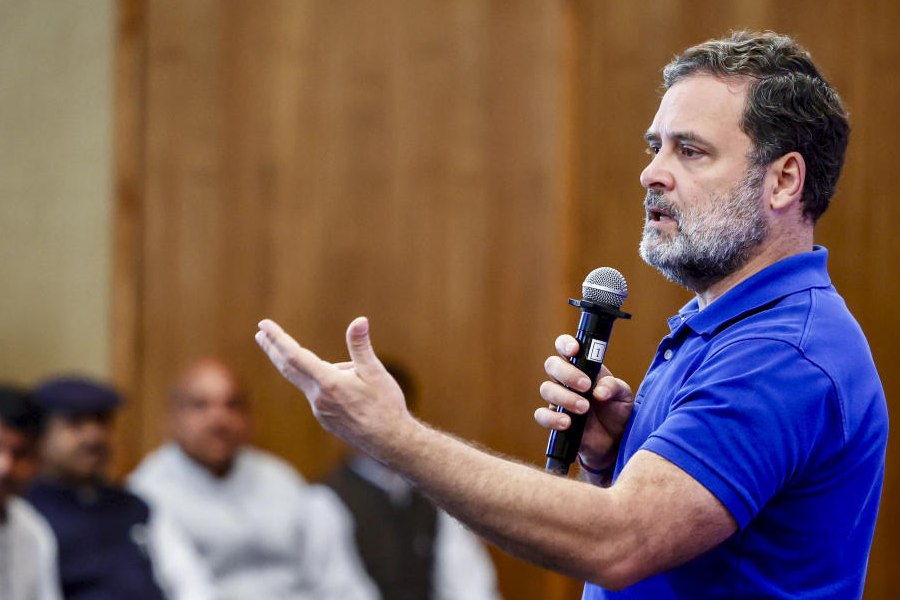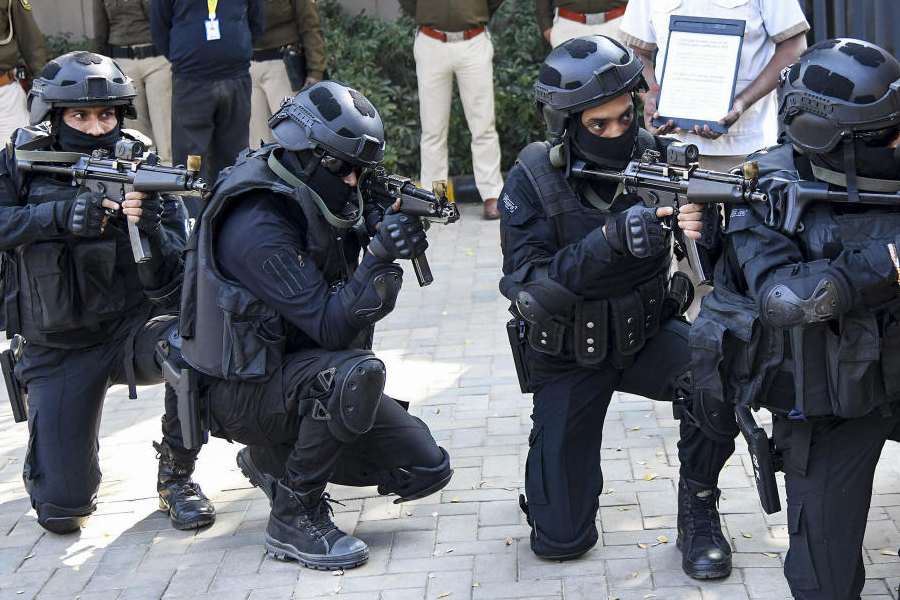Right from her first film, Jawaani Jaaneman that starred Saif Ali Khan and Tabu as her parents, Alaya F has carved an unconventional career path. This Friday, the 26-year-old actor stars in Srikanth, the biopic of industrialist Srikanth Bolla, an inspiring figure who, despite his blindness, has achieved many milestones in his life and career. Rajkummar Rao plays Srikanth, with Alaya slipping into the role of his wife Swati. t2 caught up with actress Pooja Bedi’s daughter on Srikanth, her hatke choices and her takeaways from her last marquee project, Bade Miyan Chote Miyan.
You had a big Eid release with Bade Miyan Chote Miyan and you have Srikanth coming up this Friday. Do back-to-back releases get overwhelming or do you enjoy the high?
It is not overwhelming. What is overwhelming is shooting films simultaneously, which is what happened with me. I shot for Bade Miyan Chote Miyan and Srikanth at the same time. But I also enjoyed it. I love when my films release because it feels like something that you have worked on so closely is finally coming out. It is a very exciting time for me.
The characters you play in both these films are diametrically opposite to each other. What was it like jumping from one to the other?
Honestly, that was pretty okay because both these characters are upbeat, happy characters. So it wasn’t like I was travelling from a different emotional zone to another. Of course, the characters are different and the nuances are different, but, at least for me, costume, hair and make-up make a big difference. The second I get into the look of a character, I instinctively start feeling like that character. Also, the way that my life has usually worked is that everything happens all at once. So, I have sort of got used to that.
Would you say that you work best under pressure?
I thrive under pressure. If you make me do a scene and you record it with a phone camera, my acting will look so-so. You shoot it with a DSLR camera, my acting will get a little better and if you shoot it with a film camera, it will come out even better. In a funny way, that is how my brain understands the levels of pressure. So I definitely work very well under pressure. It gives me this weird adrenaline rush that makes me think less and do more.
What is it about Srikanth and your character that struck a chord with you?
What struck me about the story was the story itself. Before I read the script, Tushar sir (Tushar Hiranandani), who is our director, told me about Srikanth’s story... and I remember being shocked. I was like: ‘What do you mean?!’ Bit by bit, he kept telling me about Srikanth’s achievements and he went on and on. I was in awe. I was even more shocked when I was told that he had already achieved so much only at 32. All that most people can’t achieve in a lifetime, he has done by 32. It was incredible!
A lot of biopics are made after the people are old or are no longer with us. But Srikanth is the story of a young man, who is still really young. His story is inspiring, especially for the youth. It is a wake-up call and a reminder that anything is possible if you want it badly enough.
When I heard the story, I knew I wanted to be a part of this film, no matter how big or small the role of Swati, Srikanth’s wife, was. Luckily, everything worked out.
I met Swati and she was lovely and really sweet. We had a wholesome conversation where Srikanth and Raj (Rajkummar Rao) were also present. The four of us chatted about life, love and food and everything we could possibly think about.
Playing Swati was a great joy. There were so many women in Srikanth’s life who were the wind beneath his wings. Getting to play one of them, alongside Jyothika ma’am, who plays another of those women, was wonderful.
Starting from your first film, Jawaani Jaaneman, you have had an unconventional career trajectory. Has that been by design or has it happened organically?
Both. In my debut movie itself, people saw me as more of an actor and not just a pretty face. So by default, the roles that came to me were significant parts that required an actor to play them. There is nothing wrong with the latter and those kinds of roles go to someone else who probably fit that bill much better than me.
Even in a huge film like Bade Miyan Chote Miyan, the character that I played, although very polarising — because people either thought she was very irritating or very interesting — it still required an actor to play her because of the way the lines had to be delivered and the way the scenes went. They needed a specific skill, which is why I got the part.
There is also an element of luck and choice in it. The films I have done have only strengthened that image and reputation of: ‘We will take her when we need someone who is an actor’.
But then, there is also the flipside that when you do a certain kind of role, you tend to get offered similar kinds of roles. After Freddy (co-starring Kartik Aaryan), I got many grey characters, dark characters. And I was like: ‘No one could see me as an evil person before and now everyone sees me as evil!’
If you were offered a character similar to what you have played before but in a huge project that ticks all the other boxes, would you say ‘yes’ or ‘no’?
If it is a big project, a story that I believe in and a director that I am dying to work with, then I will do the film without any hesitation. After that, differentiating the character is my responsibility. It is not like that I would not go for it, but there would have to be other aspects that add value to it
How do you handle failure, specifically the fact that Bade Miyan Chote Miyan, a film that was being banked on to rescue Bollywood from the doldrums, sank at the box office despite being a festival release?
I usually have expectations from how I am perceived or received in a film. Also, if I have an opinion on the story, I try and see if that ultimately matters to the film or not. Everything else that is not in my hands — whether it is the promotional plan or the release date, and this I am saying in general and not for any specific film — I can’t blame myself for. Did I have a say over it? If so, then that is my problem and I will feel accountable and responsible. But if it is something that I have zero control over, then it will not bum me out.
In terms of Bade Miyan Chote Miyan, I still feel I got a lot from that project. I got to work with Tiger (Shroff) and Akshay sir (Akshay Kumar). We shot in wonderful parts of the world and I got to do two commercial songs. It was something new for me. I also got to work with a director like Ali sir (Ali Abbas Zafar), which is a dream for so many people. With this film, I managed to reach a new audience that perhaps had not seen any of my previous films. All my other films have been pretty urban and not as massy. I don’t really feel upset or disappointed because the film did what I needed it to do for me.
Have you always had such a mature perspective towards your career?
I came in with clarity about why I was doing what I was doing. I have always held myself accountable for my choices. If it is a choice I have made, then I have to stand by it.
Of course, over time in this industry, you keep learning new things and you keep maturing. It is a tough industry, it is always different. One constantly has to learn, grow and adapt.
Then there are days when I want to just be a child and throw a tantrum! (Laughs) But then you have to get a little more mature and realise that you can’t do that.
Who would you credit for keeping you grounded?
I will have to credit my family a lot for that. From a young age, we were told to ask questions and voice our opinions and also stand by them. That made me very responsible. The encouragement to debate and question things has made me think a lot more, reflect, and understand myself, my opinions and my stances much better.
It is not like I have come into this industry and then I am trying to figure out things. I already have a fair sense of who I am, what I stand for, what I believe in and what my values are. I have the correct tools to handle situations. I know how to have an opinion, how to convey my opinion and how to question another opinion without it being unproductive and rude.
Whose career path do you admire and wish to emulate?
Alia Bhatt and Priyanka Chopra (Jonas) have had dream career trajectories. They are also two of my favourite actors.










